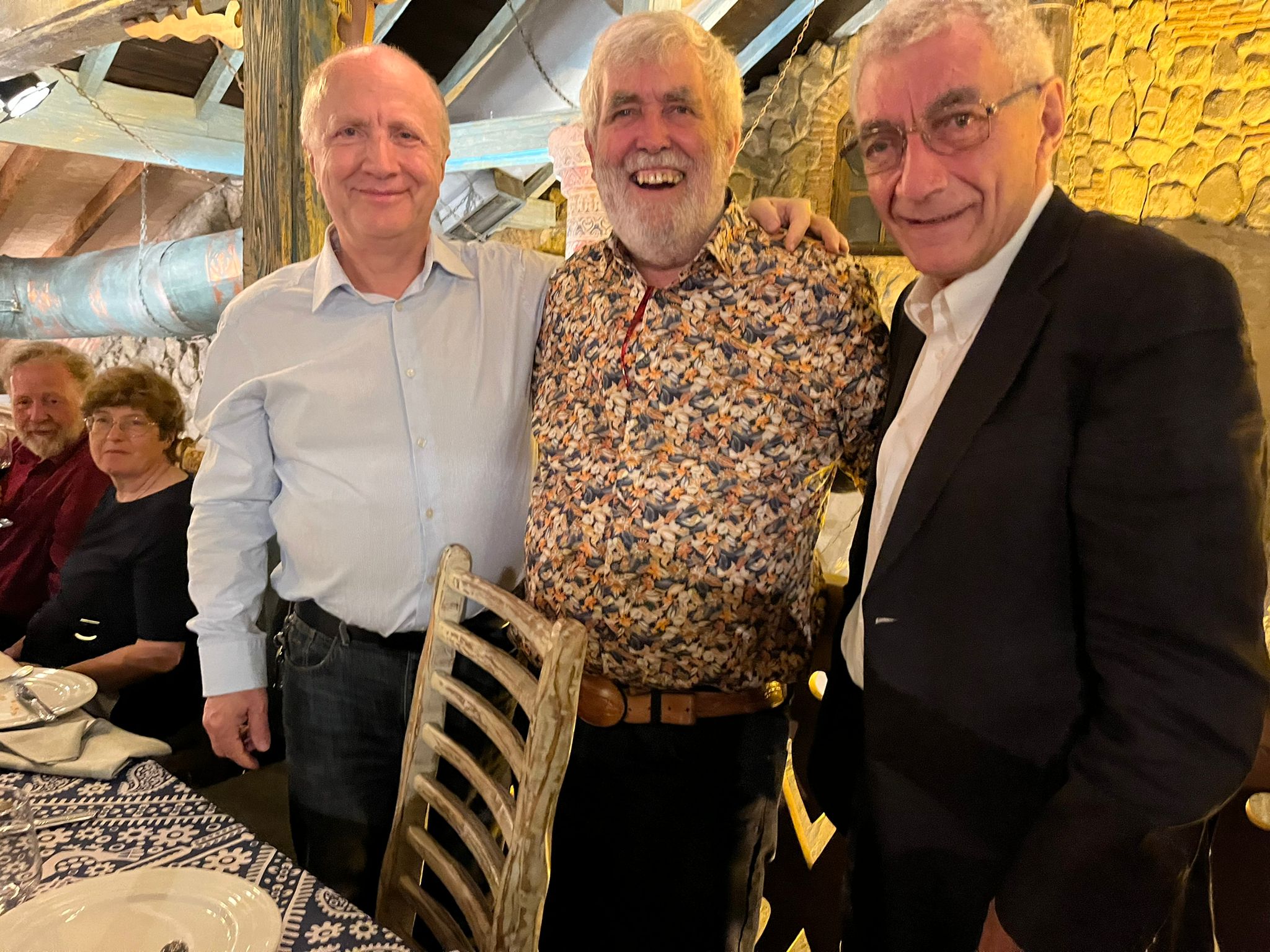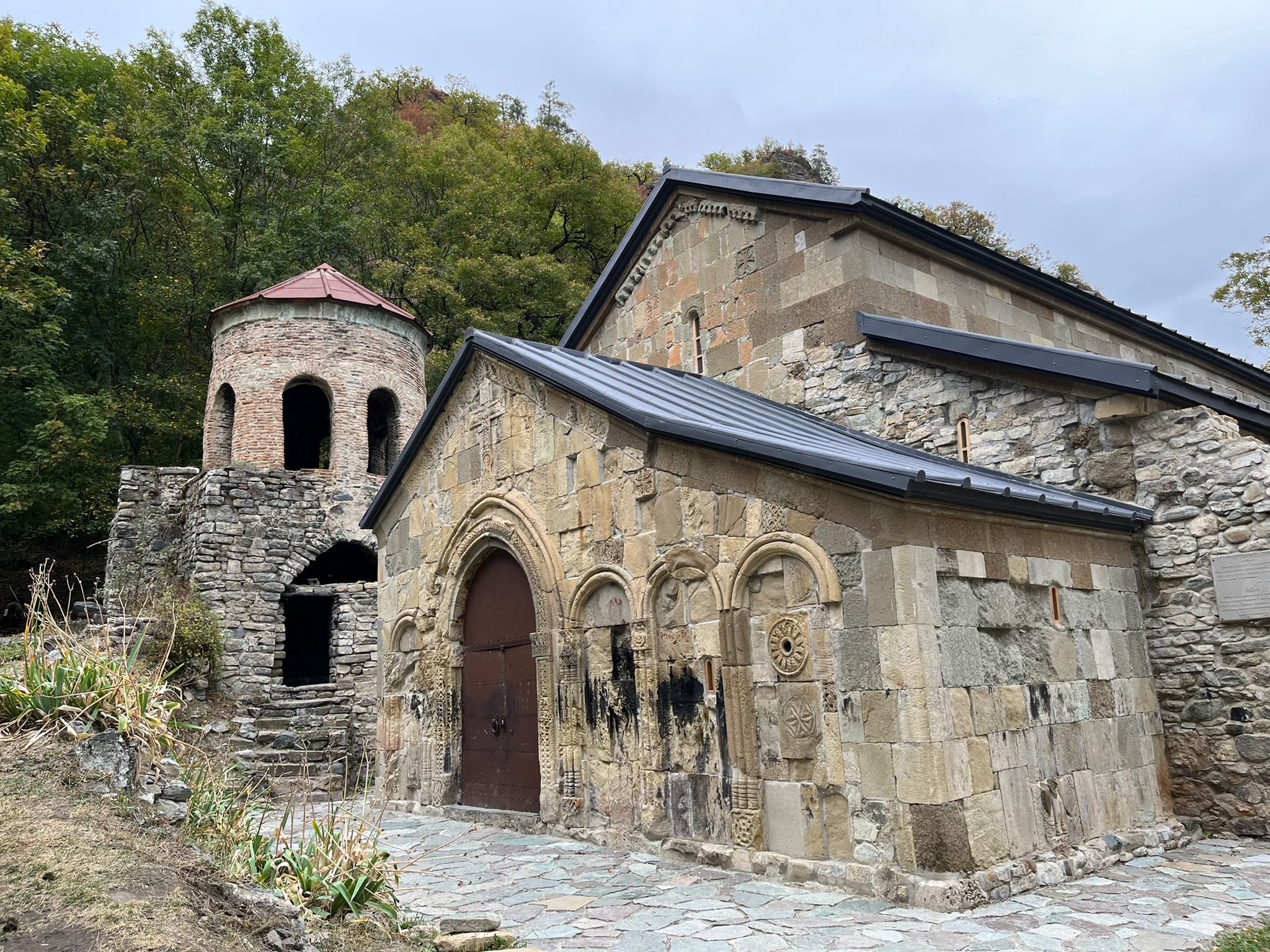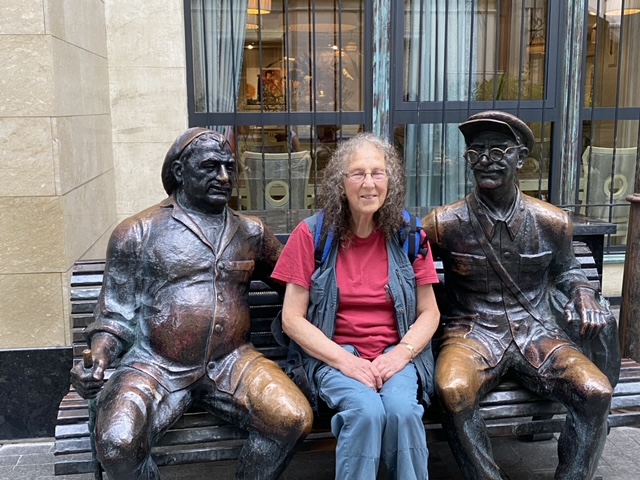Смартфон samsung galaxy отзывы. Хороший обзор смартфонов samsung galaxy. Смартфон samsung galaxy ace 2. Горнолыжные курорты италии отзывы. Лучшие горнолыжные курорты италии. Горнолыжные курорты италии фото. Лазерная коррекция зрения. Качественная коррекция зрения стоимость. Операция по коррекции зрения. Язык программирования python. Учим python быстро. Весь язык python с нуля. Лечение сетчатки глаза. Нервный тик глаза лечение. Болезни глаз лечение.
October 2022
by Marian Liebmann, BTA member
In 2018 I took part in a twinning visit to Tbilisi to celebrate the 30th anniversary of the Bristol Tbilisi Association. This was such an interesting visit that when a second visit was suggested, I could not resist, despite the feeling that flying was no longer something we should be doing. Then Covid struck, postponing this visit till October this year.
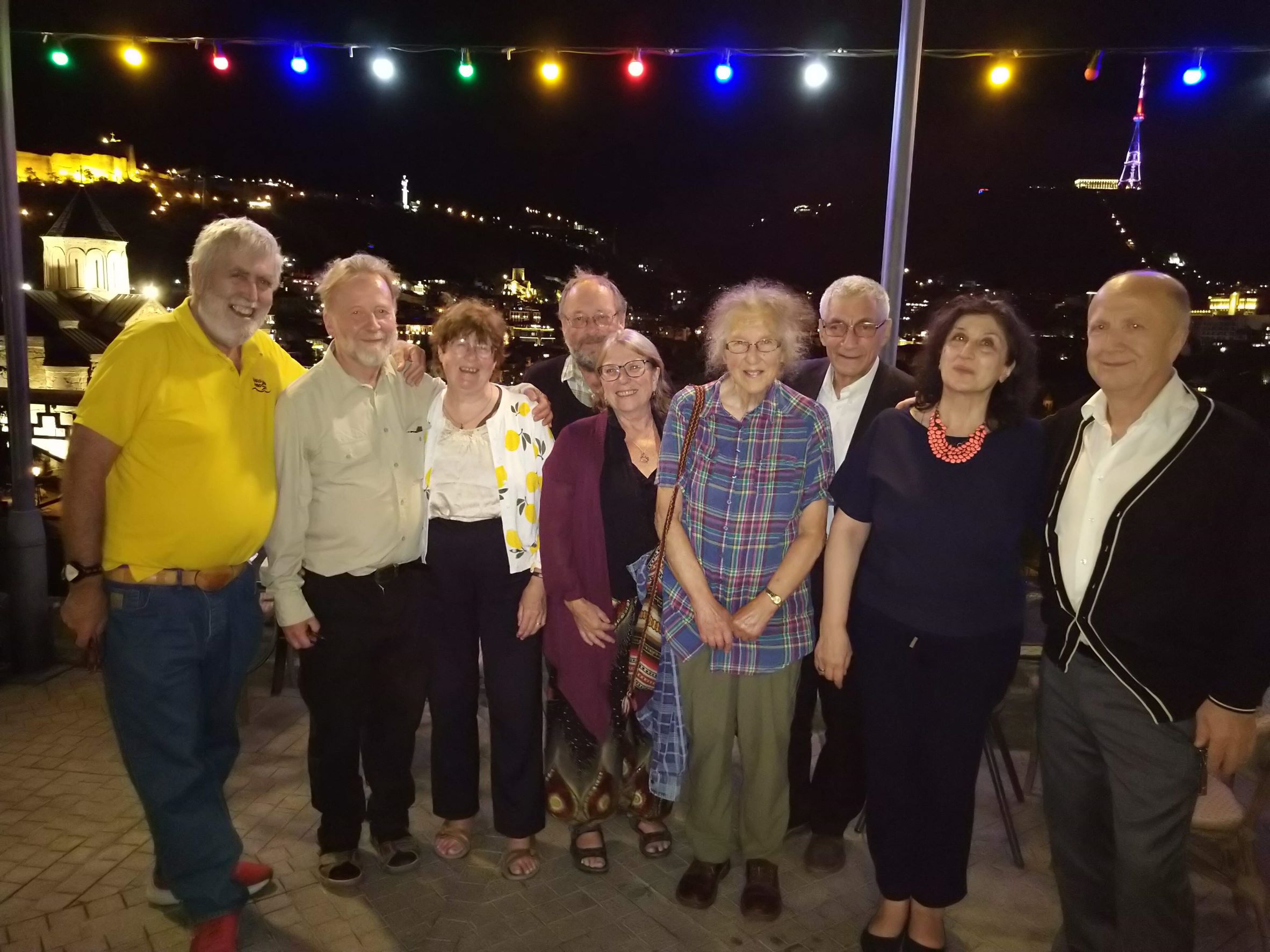 Many people’s circumstances had changed, and there is no longer a direct flight from the UK to Georgia, making travel difficult and expensive. Fortunately, I was able to join a couple and share some of their travel arrangements. We were in the end a very small group of six.
Many people’s circumstances had changed, and there is no longer a direct flight from the UK to Georgia, making travel difficult and expensive. Fortunately, I was able to join a couple and share some of their travel arrangements. We were in the end a very small group of six.
The weekend we arrived just happened to be Tbilisi Day, when the whole city comes out on the streets to celebrate, and there are exhibitions and festivities everywhere. There was a special exhibition of all the cities Tbilisi is twinned with – about 20 of them! Certainly, far more than Bristol.
To get around the traffic-congested city, we made good use of the Metro, which was cheap, frequent, fast, and very noisy. Fortunately, stations were announced in English as well as Georgian, as reading Georgian script was beyond most of us – apart from one member of our group who took on learning Georgian as her ‘lockdown project’ and was able to help us occasionally.
A lot of our time was spent eating! BTA members know how delicious Georgian food and wine is, and we had plenty – special meals with guests from the city, informal meals in parks, and a wonderful meal with a family in their country house – with fresh tomatoes, cucumbers, peppers, spinach beet, potatoes, walnut paste, Khachapuri (cheese bread), barbecued meat, special home-made plum sauce, fresh fruit and delicious dessert.
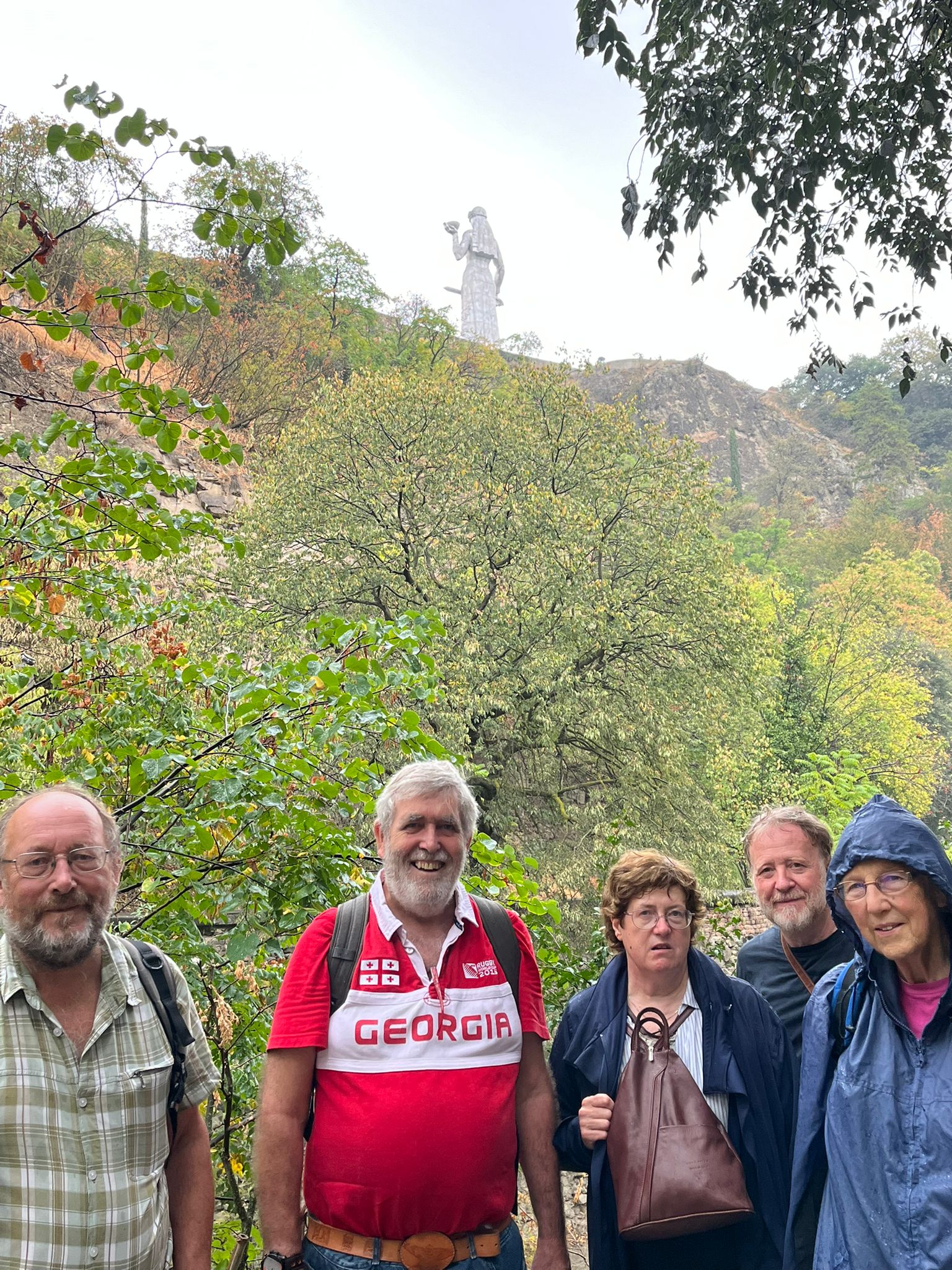 We explored the Old City, noticed the ongoing renovations, took the cable car and the funicular up to the overlooking cliffs, sampled the hot sulphur baths, enjoyed the extensive Botanical Gardens in the rain, visited a couple of museums, and had three almost day-long trips.
We explored the Old City, noticed the ongoing renovations, took the cable car and the funicular up to the overlooking cliffs, sampled the hot sulphur baths, enjoyed the extensive Botanical Gardens in the rain, visited a couple of museums, and had three almost day-long trips.
The first of these was to a winery about an hour’s drive from Tbilisi. We saw the whole process from grapes through fermentation to storage in special earthenware pots (‘qvevris’) to bottles of ten different types of wine, and finally to our six wine-tasting glasses. And lunch with wine of course!
The second of these was a country walk in the forest with autumn colours, alongside a fast-flowing river, to a set of three very old churches and a twelfth-century bridge. Amazingly the signposts for the various country walks were in English as well as Georgian! And then back to our sumptuous country meal.
The third expedition was quite local, to a jewellery and ‘cloisonné’ workshop. I thought I wouldn’t enjoy this as I am not into jewellery very much. But I was totally fascinated by all the processes. As well as jewellery, the workshop makes enamel watch and clock cases which are then shipped to Switzerland for the movements to be inserted. They also do a lot of work making icons for the Georgian Orthodox Church, for which they had to re-discover eleventh and twelfth century processes.
On our last day three of us visited the Ethnographical Museum in an outer suburb of Tbilisi. I had been there before in 2018, but this visit was much longer. We booked an English-speaking guide for an hour, and he spent three hours with us, showing us all the old houses (mostly transplanted from various parts of Georgia), adding comments about the difficulties of running the museum in current circumstances. He was also an artist and gave us a booklet with his beautiful drawings of all the houses.
This visit was not just a tourist trip - we also met influential people from the city, especially those concerned with the city twinning office, and had many toasts (no Georgian meal is complete without these) to international friendship, to absent friends, and to all those who had helped to make the visit such a warm and welcoming experience.
The other crucial aspect was the presence of Derek Pickup (chair of Bristol Tbilisi Association) as our guide. He had been to Georgia over 50 times, and now even has a Georgian passport! He is also Honorary Consul of Georgia in UK. He was able to add comments about the political situation and developments and changes he had seen over the years. Our visit coincided with the influx of Russians hoping to avoid being drafted into the Russian army, which resulted in hotels filling up and pushing prices up.
With the high rise in fares, and the environmental damage of flying (it would take 3 days at least by train), I wonder what the future of twinning cities will be? It would be a shame if visits like these (and the equivalent visits from Tbilisi to Bristol) could no longer take place. If you would like to know more, think about joining the Bristol Tbilisi Association – there are regular talks and events, even the occasional Georgian supra (formal meal with toasts).
*



